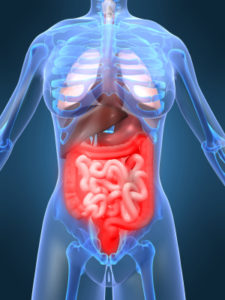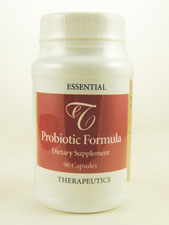Probiotics and Your Health
 While your body consists of about ten trillion cells, the bacteria that live within us add up to close to a hundred trillion cells. The vast majority of these bacteria live in the digestive tract. A healthy intestinal tract contains some 2–3 lb. of good bacteria. You have more bacteria in your intestinal tract body than you do in your cells…you’re outnumbered! The body’s defenses are centered in the digestive tract where immune cells and probiotics or good bacteria team up to resist infection.
While your body consists of about ten trillion cells, the bacteria that live within us add up to close to a hundred trillion cells. The vast majority of these bacteria live in the digestive tract. A healthy intestinal tract contains some 2–3 lb. of good bacteria. You have more bacteria in your intestinal tract body than you do in your cells…you’re outnumbered! The body’s defenses are centered in the digestive tract where immune cells and probiotics or good bacteria team up to resist infection.
When Should You Take Probiotics?
Anytime you take antibiotics or cortisone (steroids) you kill off the good bacteria- take 12 hours apart from antibiotics or take probiotics for 2 weeks after completing your prescription. Birth control pills can lead to depletion of the good bacteria, so can long-term use of non-steroidal anti-inflammatory drugs (NSAIDs), and changes in diet (traveling). Viral infections, especially stomach “bugs” should be countered with daily probiotics (9 billion a day on an empty stomach).
Interested in joining us on Tomorrow night’s FREE Question & Answer Teleconference?
Register Here!
Probiotics Are Good For You But Who Do Trust?
Whenever we are exposed to harmful bacteria, yeast, or parasites, our immune cells in the digestive tract can shield us from harmful contamination. Probiotics aid this process by boosting the effectiveness and activity of these intestinal immune cells.

In fact the GI tract is our first line of defense as it contains 70% of the body’s immune cells!
And as a health enriching, disease preventing strategy, take probiotics for one week out of every month.
You’ve already heard that probiotics are good for your health. You’ve heard that they support a healthy immune system. And you’ve seen advertisements telling you to take them for help with digestive disorders such as bloating, gas, and indigestion.
Unfortunately, most people who are now taking probiotics are wasting their money – and still suffer from bloating, gas, indigestion, and other digestive problems.
Essential Therapeutics Probiotic Formula
Use Enteric Coated High Dose Capsules; Here’s Why…
Most probiotic supplements on the market are simply worthless. In fact, an independent laboratory recently tested many of the most popular brands and found that nearly a third of them flunked. Some products contained less than 1% of the amount of live bacteria claimed. What’s worse, a quarter of the products contained only one-ten thousandth the amount claimed.
Worthless!
Every probiotic supplement claims to have a high number of organisms. But, and this is a big but, these organisms are counted at the time of manufacture, not at the time they reach your grocer’s shelf.
By the time you buy them, they’ve often been exposed to light and heat, which kill off and drastically reduce the number of the beneficial bacteria.
In fact, Consumer Reports tested 27 different probiotic products and found that one in four supplements contained fewer bacteria than the amount claimed at the time of manufacture. And because these organisms can be weakened or killed by the acids in your stomach they need to be packaged in an enteric-coated capsule. If not they are destroyed in your stomach and they never reach your intestinal tract where they are needed to do their job. Worthless!
Please ask the front desk, or give us a call today at: (888) 884-9577
I recommend my patients use enteric-coated high dose (3 billion plus live bacteria per capsule). Specially, enteric-coated capsules make sure the probioic capsules aren’t destroyed in the stomach. This guarantees that the probiotics will pass through your stomach unharmed and are delivered into your intestines. Enteric-coated probiotics are then free able to reach their target, the small and large intestine where they provide health-benefiting bacteria.
I recommend the Essential Therapeutics Probiotic Formula, which contains the 3 most important strains of beneficial bacteria that are crucial to your health:
These 3 are the three most important healthy bacteria:
- Lactobacillus (L. acidophilus)
- Lactobacillus rhamnosus (L. rhamnosus)
- Bifidobacterium bifidum





Leave a Reply
Want to join the discussion?Feel free to contribute!